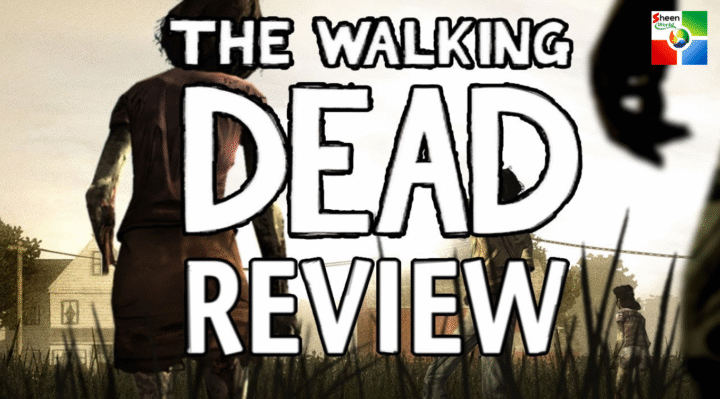At a Glance Walking Dead Season 1

Introduction
The Walking Dead premiered in 2010 and quickly became a cultural phenomenon, drawing viewers into a harrowing world where survival hinges on the thin line between humanity and monstrosity. Based on the comic book series by Robert Kirkman, Tony Moore, and Charlie Adlard, the show captivated audiences with its rich storytelling, complex characters, and intense emotional stakes. This article delves into “The Walking Dead Season 1,” providing a comprehensive review that explores its narrative, character development, themes, and impact on the television landscape.
The Premise of The Walking Dead
Setting the Stage
“The Walking Dead” is set in a post-apocalyptic world overrun by zombies, referred to as “walkers.” The series begins with Sheriff Deputy Rick Grimes awakening from a coma to discover that the world as he knew it has collapsed. Society has crumbled, and the few remaining humans must navigate the dangers of a new reality filled with both the undead and the living threats of desperation.
The Initial Hook
The first season introduces viewers to this grim new world through Rick’s perspective. His awakening is a shock, leading to a series of harrowing revelations. The show’s initial hook lies in its exploration of survival, loss, and the quest for hope amidst chaos.
Thematic Depth
At its core, the series examines what it means to be human in a world stripped of civilization. As the characters navigate their new reality, they confront moral dilemmas that challenge their humanity and relationships. This theme of moral ambiguity is central to the series and becomes increasingly complex as the story unfolds.
Episode Breakdown
Episode 1 – “Days Gone Bye”
The pilot episode serves as a powerful introduction to the series. It establishes the tone, setting, and primary characters while immersing viewers in the chaos of the apocalypse Key Moments
- Rick’s Awakening: The episode opens with Rick waking in a hospital, surrounded by the aftermath of the apocalypse. His confusion and fear set the stage for the horror that follows.
- First Encounter with Walkers: Rick’s initial encounters with walkers are visceral and terrifying, effectively showcasing the stakes of this new world.
- Character Introductions
Rick Grimes, played by Andrew Lincoln, is the focal point of the episode. His character is established as a principled leader, and viewers witness his determination to find his family amidst the chaos.
Episode 2 – “Guts”
This episode expands the narrative by introducing new characters and deepening Rick’s journey.
Character Dynamics
- Meeting Glenn: Rick encounters Glenn (Steven Yeun), who becomes a vital ally. Their relationship introduces themes of friendship and loyalty.
- The Group’s Struggles: The episode highlights the challenges the group faces in their efforts to survive, showcasing the tension between different personalities.
The Importance of Community
As Rick integrates into a group of survivors, the episode underscores the significance of community in the face of adversity. The dynamics within the group set the stage for future conflicts and alliances.
Episode 3 – “Tell It to the Frogs”
This episode focuses on the emotional stakes of survival as Rick’s priorities shift.
Family and Relationships
- Rick’s Search for His Family: Rick’s motivation to reunite with his wife, Lori (Sarah Wayne Callies), and son, Carl (Chandler Riggs), becomes a central theme.
- Conflict Among Survivors: Tensions rise within the group as personal relationships are tested, particularly between Shane (Jon Bernthal) and Rick.
The Complexity of Survival
The episode emphasizes that survival is not just about facing external threats; it also involves navigating the complexities of human relationships.
Episode 4 – “Vatos”
This episode introduces themes of morality and the preservation of humanity.
Encounters with Other Survivors
Rick and his group encounter another group of survivors, leading to moral dilemmas that challenge their values.The Question of Humanity
The episode raises questions about what it means to be human in a world gone mad. The interactions between groups highlight the blurred lines between savagery and compassion.
Episode 5 – “Wildfire”
The stakes escalate as the group faces internal and external threats. The Consequences of Decisions
- Loss and Grief: The episode deals with the emotional fallout from losses experienced by the group, emphasizing the psychological toll of survival.
- The Use of Resources: The group’s decisions regarding resources and safety become critical, showcasing the practical challenges of living in a post-apocalyptic world.
Character Development
The episode deepens character arcs, particularly for characters like Shane, whose ethical boundaries continue to blur. Episode 6 – “TS-19”
The season finale culminates in a dramatic showdown as the group confronts their fears and uncertainties.
The Sanctuary and Its Secrets
- The CDC: The group arrives at the CDC, seeking refuge and answers. The episode explores themes of hope and despair.
- The Reality of Survival: The revelations about the CDC’s purpose challenge the group’s understanding of survival and the future of humanity.
Emotional Resolutions
The season finale wraps up character arcs while leaving questions unanswered, setting the stage for future seasons.
Character Development
Rick Grimes: The Reluctant Leader
Rick’s character development is central to Season 1. He evolves from a law enforcement officer into a reluctant leader, grappling with the responsibilities that come with survival.
The Impact of Loss
Rick’s journey is marked by loss and the struggle to maintain his humanity. His decisions often reflect the moral dilemmas faced by those in desperate situations.
Supporting Characters
The supporting cast plays a vital role in shaping Rick’s character and the overall narrative. Characters like Shane, Lori, and Glenn add complexity and depth to the story.
Themes and Motifs
Survival vs. Humanity
One of the most prominent themes in Season 1 is the struggle between survival instincts and the preservation of humanity. Characters are often faced with choices that test their morals and ethics.
The Nature of Fear
Fear is a driving force in the series, influencing characters’ decisions and relationships. The presence of walkers serves as a constant reminder of the dangers lurking in their world. Community and Isolation
The importance of community is emphasized throughout the season. However, the threat of isolation looms large, as characters grapple with trust and betrayal.
Cinematic Quality
Direction and Cinematography
The direction and cinematography of “The Walking Dead” contribute significantly to its atmosphere. The use of lighting, framing, and camera angles immerses viewers in the harrowing reality of the characters. Visual Storytelling
The show’s visual storytelling effectively conveys emotions and themes. The juxtaposition of serene landscapes with the horror of the undead creates a haunting contrast.
Sound Design
The sound design enhances the tension, with unsettling ambient noises and effective use of silence that amplify the emotional stakes.
Cultural Impact
A New Era for Zombie Media
“The Walking Dead” revitalized interest in zombie narratives, influencing other media and sparking a resurgence of the genre.
Fandom and Community Engagement
The show cultivated a dedicated fanbase, leading to conventions, merchandise, and online communities. Fans engage in discussions, theories, and fan art, contributing to the cultural phenomenon.Critical Acclaim and Awards
The first season received critical acclaim, garnering numerous awards and nominations for its storytelling, performances, and production quality.
Conclusion
“The Walking Dead Season 1” serves as a powerful introduction to a series that explores the complexities of survival, humanity, and moral ambiguity. Its compelling characters, engaging narrative, and thematic depth set the stage for an enduring franchise that has left an indelible mark on television and popular culture. As viewers follow Rick Grimes and his group through their harrowing journey, they are reminded of the fragility of civilization and the resilience of the human spirit.
FAQs About The Walking Dead Season 1
What is the premise of The Walking Dead?
The Walking Dead follows a group of survivors navigating a post-apocalyptic world overrun by zombies, focusing on their struggles for survival and the moral dilemmas they face.
How many episodes are in Season 1?
Season 1 consists of six episodes.
Who are the main characters in Season 1?
Key characters include Rick Grimes, Shane Walsh, Lori Grimes, Carl Grimes, and Glenn Rhee.
Is The Walking Dead based on a comic book?
Yes, The Walking Dead is based on the comic book series created by Robert Kirkman, Tony Moore, and Charlie Adlard.
What themes are explored in Season 1?
Themes include survival, morality, fear, community, and the nature of humanity in a world without civilization.
By understanding the intricacies of “The Walking Dead Season 1,” viewers can appreciate the depth and artistry that have made this series a defining moment in television history.



